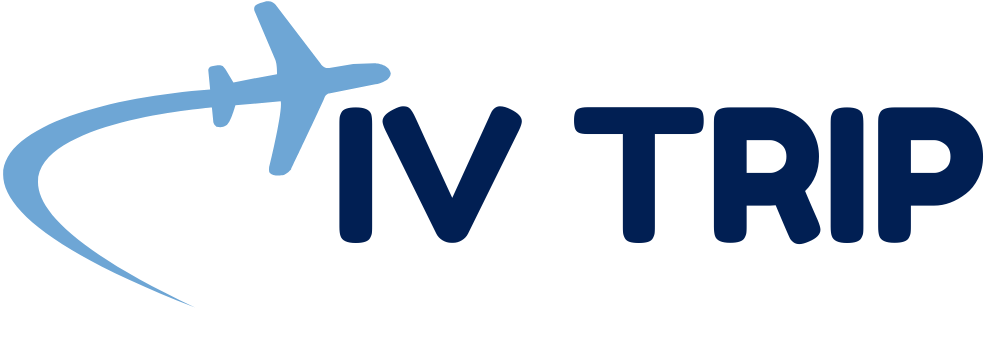Why Travel Agency CRM Software is Essential for Business Growth

The travel industry landscape is shifting rapidly, and agencies that delay embracing modern systems risk falling behind. Whether you’re a boutique tour operator in Dhaka or a growing mid-sized travel agency across Bangladesh, your ability to manage customers, leads, and operations effectively will determine whether you scale or stagnate. That’s where travel agency CRM software comes into play.
For those wondering “what is Travel Agency CRM Software?” or “why does CRM matter for travel agencies?”, this comprehensive guide explains it all. It explores how CRM serves as a strategic growth driver rather than just an optional tool, and how a travel-agency-specific solution like the one offered through IV Trip can unlock real business value for travel firms in Bangladesh and beyond. The guide also provides practical insights on implementation, best practices, and aligning technology with processes to achieve measurable results.
What is Travel Agency CRM Software and Why Travel Agencies Should Care
What is Travel Agency CRM Software?
CRM (Customer Relationship Management) is the system and process you use to manage your customers, leads, and interactions in a unified way. It’s more than a contact list—it’s where you store history, track preferences, follow up on leads, measure engagement, and coordinate sales, marketing, and service.
Why travel agencies in Bangladesh should care
In the Bangladeshi travel market:
- Competition is increasing, both domestically and for outbound travel.
- Clients expect more personalized service—tailored packages, fast responses, clear communication.
- Operations often involve multiple services (flights, hotels, visas, tours) and different suppliers.
- Without structured CRM, you risk missing leads, losing customers, and failing to scale.
According to a blog, travel and hospitality agencies use CRM to manage bookings, preferences, and promotions, and travel-agency software that includes CRM features is becoming essential.
For agencies in Bangladesh, investing in travel agency CRM software is not optional if you want to grow beyond day-to-day transactions.
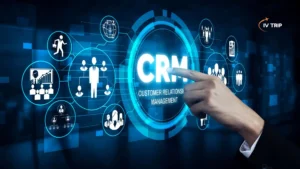
Why Travel Agency CRM Software Is So Important for Business Development
Let’s break down the key benefits and how they drive your business development.
Streamlined operations and efficiency
When you implement quality travel agency CRM software, you:
- Centralise customer and lead data in one place—no more spreadsheets and scattered notes.
- Automate repetitive tasks: follow-ups, reminders, communications. For example, with IV Trip’s automated CRM module, you can schedule reminders, track leads, and avoid manual drop-offs.
- Reduce manual errors—especially important when managing bookings (flights, hotels, visas), invoices, and payments. As IV Trip notes, their travel management software helped agencies reduce errors by up to 70% with automation.
- Aggregate operational workflows—sales, marketing, service, accounting—so your team is aligned and responsive.
All of that translates into lower costs, faster turnaround, and higher capacity. When you free your staff from manual busy-work, they have more time to sell, service, and build relationships.
Better lead management and higher conversions
A big part of travel business growth is converting leads—and converting them faster.
- With a CRM, you capture inquiries from your website, phone, and email channels and track them centrally.
- You can automatically trigger follow-ups: “you asked for a quote—here’s an offer”, “did you like the itinerary?”, etc.
- You can track lead status: contacted, quoted, awaiting decision, booked. That means fewer forgotten leads.
- You can segment leads (e.g., family holiday, corporate travel, inbound tourism) and tailor your messaging.
In short, Travel Agency CRM Software helps you convert more inquiries into bookings, which accelerates revenue growth.
Improved customer satisfaction and retention
Growth isn’t just about new clients—it’s about keeping clients. Travel loyalty is real: repeat clients cost less to serve and refer more business. CRM helps here:
- You maintain a complete history for each customer—the destinations they like, the airlines they prefer, the hotels they’ve stayed at, and their special requests.
- You personalise offers: “We know you travelled to Thailand last year—would you like a similar Maldives package this year?”
- You automate post-trip communications, including feedback surveys, special offers, and reminders about membership perks.
- You deliver faster, more accurate service because your team has full context.
In the travel world, satisfaction and retention drive word-of-mouth referrals, which fuel growth without requiring heavy marketing spend.
Data-driven insights for strategic growth
Here’s where things shift from “doing better” to “growing smarter”. With CRM and integrated systems, you gain analytics:
- Which packages sell best? Which channels deliver the highest-quality leads?
- Which customers are most profitable? Who refers new business?
- What is your average booking value? What’s the lifetime value of a client?
- Where are bottlenecks in the process (quote→booking, booking→payment, etc.)?
With these insights, you can make better decisions: focus on high-return segments, refine your offerings, and allocate your marketing budget more effectively. The blog post on Travel Agency CRM Software solutions highlights that travel agencies can benefit dramatically from these analytics.
Scalability and competitive advantage
If you’re planning to grow—adding more clients, more services, maybe new geographies—then standard ad-hoc methods won’t suffice. CRM software built for travel agencies enables scalability:
- You can replicate processes, train new staff faster, and onboard sub-agents or branches without chaos. For example, IV Trip supports multi-agent and sub-agent management.
- You build a competitive advantage: agencies that can respond faster, offer better personalised service, and operate more smoothly will stand out.
- You future-proof your business: as more travel shifts online, as clients expect mobile responsiveness and instant communication, your CRM backbone becomes a differentiator.

CRM Software in Bangladesh: Unique Considerations for Travel Agencies
Travel Agency CRM Software in Bangladesh – what you need to know
When choosing a travel-agency CRM in the Bangladesh context, consider these factors:
Localisation and language
Your team and clients often prefer Bangla-language UI, or at least a straightforward interface—documentation and training in the local language matter. The IV Trip platform emphasizes being localized for Bangladesh.
Payment channels and currency support
Bangladesh travel agencies often work with BDT currency, mobile wallets (bKash, Nagad), and local bank integration. Make sure your CRM and integrated platform handle these. IV Trip supports local payments, as per its feature list.
Supplier integrations and inventory management
Travel agencies often deal with complex supply chains—domestic airlines, hotels, inbound/outbound partners. Choose a platform where CRM integrates (or co-exists) with bookings, supplier modules, and itinerary tracking. For example, IV Trip offers flights, hotels, visa modules, CRM, and automation together.
Scalable for small to mid-sized agencies
Many travel businesses in Bangladesh are small or medium-scale. A CRM solution should be affordable, easy to adopt, and scale as you grow. Look for cloud-based SaaS solutions to minimise hardware costs. The blog mentions that even small businesses can adopt advanced CRM.
Mobile-friendly and remote access
Agents often work on the move. A CRM that supports a mobile or responsive interface ensures your team stays connected. The IV Trip blog stresses mobile optimisation for travel agencies.
CRM software in Bangladesh – pitfalls to avoid
- Implementing a large, generic CRM that isn’t tailored for travel may leave you with missing modules (bookings, itineraries, supplier management).
- Ignoring change management: your team must buy in, be trained, and adapt their workflow.
- Data silos: if your CRM doesn’t integrate with your bookings engine or accounting system, you’ll end up with fragmented data.
- Over-customisation or complex configuration can slow adoption—especially risky for smaller agencies.
- Not measuring ROI: track metrics (lead conversion, retention, cost per booking) so you know the CRM is delivering value.
How to Choose and Implement Travel Agency CRM Software
Step 1 – Define your goals and scope
Identify what you want the system to achieve — for example:
- Raise lead follow-up efficiency and conversion rate by X%.
- Boost repeat business by Y% in the next year.
- Cut manual data entry and errors by Z%.
- Deliver tailored offers to high-value clients.
- Clarify which teams will use the CRM (sales, bookings, service, marketing) and map out essential modules (lead management, customer history, communications, bookings).
Step 2 – Evaluate Specific Travel Agency CRM Software
When shortlisting solutions, check for:
- Features tailored to travel: itineraries, bookings, supplier tracking.
- Localisation (e.g., Bangla/English interface, local currency/payment options).
- Scalability to support sub-agents, branches, and growth.
- Reporting and analytics suitable for travel industry KPIs.
- Ease of use, integration with booking engines, accounting, and marketing tools.
- Transparent SaaS pricing and support.
Step 3 – Implementation and change management
Once you’ve picked the system:
- Map your existing process: lead → quote → booking → post-travel follow-up.
- Clean your data: import, dedupe, and validate records.
- Set up workflows: status stages for leads, automated follow-ups, and task triggers.
- Train users by showing real-life use cases and benefits.
- Pilot the system with one team or segment before full rollout.
- Monitor usage: Are leads followed up? Are bookings up?
- Refine regularly: tweak workflows, automation, templates.
Step 4 – Measure success and optimise
Track key metrics:
- Lead response time.
- Lead-to-booking conversion rate.
- Repeat customer rate.
- Average booking value.
- Cost per lead/acquisition.
- Customer satisfaction.
- Use these insights to optimise: segment clients, upsell to high-value groups, and streamline service.
Choosing the Right Travel Agency CRM: Features Checklist
Features your travel agency CRM software must have
- The IV Trip software includes a built-in CRM module specifically for travel agencies: tracking leads, bookings, customer history, follow-ups, and preferences. This makes it highly effective as a travel agency crm software solution for day-to-day operations.
- It’s geared for the Bangladesh market: local currency (BDT), local payment gateways, Bangladeshi airlines, and sub-agent structures.
- It integrates bookings (flights/hotels/packages), invoices, and CRM in one unified platform—so your data flows seamlessly instead of being siloed. This unified approach adds more value than a typical standalone travel agency crm software.
- It offers scalability: whether you’re a small travel agency or an enterprise with branches/sub-agents, the platform supports growth.
- Training and localization support ensure your team adapts and the platform delivers results in the Bangladesh context.
Suppose you’re planning to implement or upgrade your CRM within a travel-agency environment. In that case, we’d be glad to walk you through how IV Trip aligns with your business development goals as a comprehensive travel agency crm software.
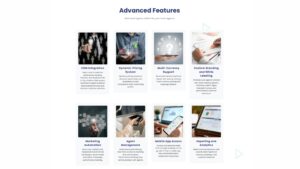
How the IV Trip Platform Supports Travel Agency CRM Needs
Let’s highlight how the platform we built supports travel business growth through CRM features.
- The IV Trip software includes a built-in CRM module specifically for travel agencies: tracking leads, bookings, customer history, follow-ups, and preferences.
- It’s geared for the Bangladesh market: local currency (BDT), local payment gateways, Bangladeshi airlines, and sub-agent structures.
- It integrates bookings (flights/hotels/packages), invoices, and CRM in a single unified platform. So your data flows seamlessly rather than being siloed.
- It offers scalability: whether you’re a small travel agency or an enterprise with branches/sub-agents, the platform supports growth.
- Training and localisation support ensure your team adapts and the platform delivers results in the Bangladesh context.
Suppose you’re planning to implement or upgrade your CRM within a travel-agency environment. In that case, we’d be glad to walk you through how IV Trip aligns with your business development goals.
Common Objections and How to Overcome Them
- “The agency is small — is CRM software really necessary?”
Yes. Even smaller travel agencies benefit from CRM software because it ensures all leads are captured (so nothing falls through the cracks), enables superior service (so the agency stands out), and supports repeat business (which costs less than acquiring entirely new clients). When processes are established early, scaling becomes much more manageable.
- “CRM implementation is costly and time‑consuming.”
That concern is valid — yet it can be addressed in phases: beginning with core lead and customer tracking, then adding automation, and finally full system integration. Choosing a cloud‑based solution keeps infrastructure costs low. If the agency achieves even a moderate uptick in conversion or repeat business, the return on investment becomes evident.
- “Staff resist change / they’re used to spreadsheets.”
Change management is critical. Agencies must demonstrate the benefits: less manual work, fewer errors, and more time for sales and relationship building. Comprehensive training, clear incentives, and monitoring usage are key. The value of the CRM hinges on actual adoption by the team.
- “We already have booking software — do we still need a separate CRM?”
Suppose the booking system doesn’t handle lead tracking, follow‑up workflows, full customer history, and marketing automation. In that case, the answer is yes: a dedicated CRM is still necessary. Many travel‑industry specific platforms now provide CRM modules alongside bookings and operations — enabling a more integrated business backbone.
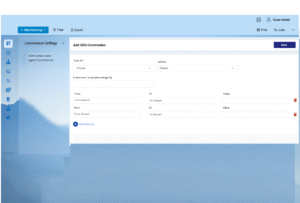
FAQ: Travel Agency CRM Software
What is Travel Agency CRM Software?
Travel Agency CRM Software is a system that manages leads, customers, bookings, and communications in one place—so you can track history, follow up effectively, and personalize service.
How does travel agency CRM software help increase bookings?
It ensures leads are captured and systematically followed up on, allows you to personalise offers based on customer history, and improves responsiveness—all of which lead to higher conversion rates.
Is CRM software suitable for small travel agencies?
Yes. Even if you’re a small agency, CRM helps organise your processes, maximise every lead, build repeat business, and prepare for growth.
What features should I look for in CRM software in Bangladesh?
Look for lead and customer tracking, personalised communications, integration with the booking engine, local currency/payment support, mobile access, and reporting/analytics.
How long does it take to implement travel-agency CRM software?
It depends on complexity and data migration, but many agencies can go live with core CRM features in 4-8 weeks, then gradually integrate additional modules.
What is the cost of CRM software for travel agencies?
Costs vary—many cloud-based models charge a subscription per user/month. Tailored travel-agency platforms may bundle bookings, CRM, and operations. You should evaluate the total cost and ROI.
Can CRM integrate with my booking and accounting systems?
Yes—modern travel-agency software (like IV Trip) offers integrated modules or APIs to link bookings, accounting, and CRM, so you avoid silos and manual data transfers.
How can travel agency software improve customer retention?
By maintaining full customer history, enabling personalised offers, automating post-trip follow-ups, and delivering better service, you make clients more likely to return.
What metrics should I track after implementing CRM in a travel agency?
Track lead response time, lead-to-booking conversion rate, average booking value, repeat customer rate, cost per booking, and customer satisfaction.
Why is CRM software especially important in Bangladesh’s travel industry?
Because the market is competitive, client expectations are rising, and agents face complex supply chains (flights, visas, hotels) and local payment/currency issues. A CRM built for the local context helps you stay efficient and scale.
Travel agency CRM software is essential for business growth. It streamlines operations, boosts lead conversion and customer retention, provides actionable insights, and enables scalable growth in competitive markets like Bangladesh. An integrated CRM with bookings, operations, and payments transforms agency performance.
IV Trip delivers travel-industry-specific solutions that combine booking, finance, CRM, and automation for Bangladeshi agencies.
Elevate your agency’s performance today. Contact IV Trip to request a demo, explore our services, and subscribe to our blog for the latest travel-tech and CRM insights.
